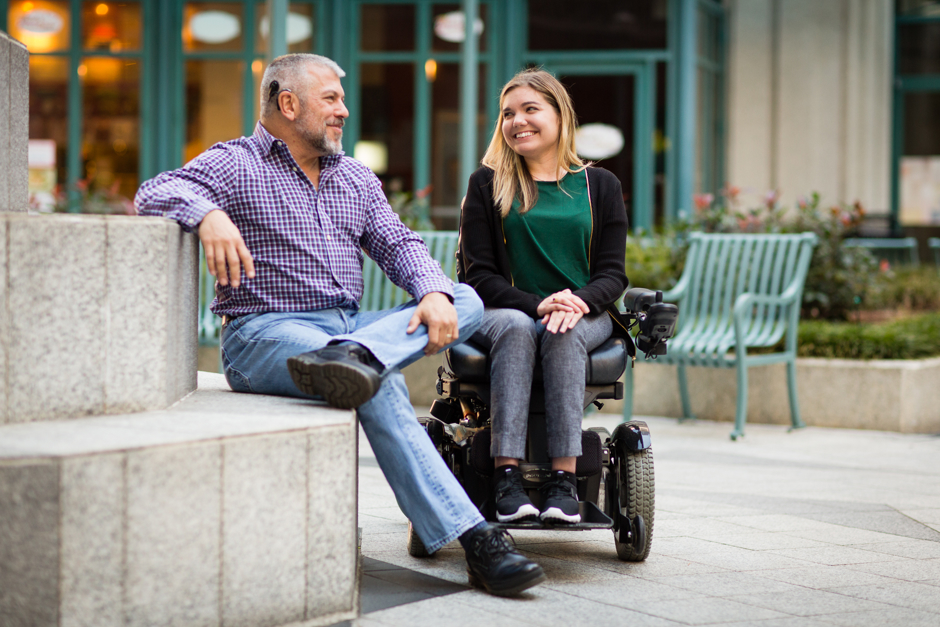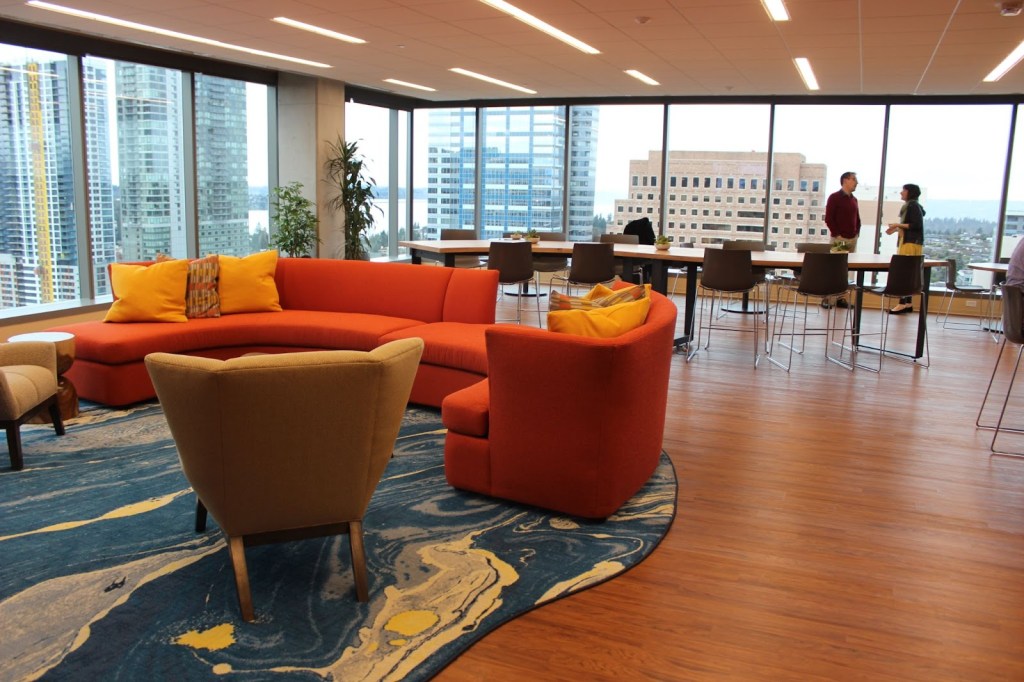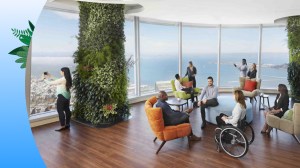An estimated 386 million of the world’s working-age people are living with a disability. This means that many are expected to travel to offices occasionally or even every day. These statistics illustrate a critical point for employers: To create a truly inclusive workplace, employees and visitors must have equal access to the spaces where business is done.
At Salesforce, we’re working to build a world in which everyone has the same opportunities and access as people without disabilities. That’s why our Accessibility Task Force recently launched the Real Estate Accessibility Awareness Project, designed to audit our existing accommodations and communicate accessibility information to visiting employees and guests.
At Salesforce, we’re working to build a world in which everyone has the same opportunities and access as people without disabilities.
This initiative not only benefits individuals with permanent disabilities but also those who experience temporary restrictions in their lives. This includes employees recovering from surgery to visitors still dealing with the effects of long-term COVID-19. It also helps everyone working or visiting the hubs know what to expect — and make the necessary accommodations in our workspaces so we can offer the most accessible experience possible.

Gathering data
To start the Real Estate Accessibility Awareness Project project, members of the Accessibility Task Force collected and organized accessibility provisions at 18 global Salesforce hubs. They gathered information about people’s experience reaching our buildings, including transportation options, the experience in our building reception areas, and specific accessibility inclusions and restrictions people may face along the way. The Task Force also reviewed each building’s access layers — corridors, pathways, ramps, and curb cuts — and considered navigation options like automatic doors, smooth thresholds, wheelchair-reserved areas, elevators, large bathroom stalls, and accessible parking.
Transparency offers information and resources to employees and visitors
One thing became very clear during the review process: While Salesforce is continually working to improve our office spaces, accessibility barriers do still exist, and more can be done. For example, some offices, especially those in historic buildings, have been unable to implement every accessibility provision.
One thing became very clear during the review process: While Salesforce is continually working to improve our office spaces, accessibility barriers do still exist, and more can be done.
With information on those initial 18 global hubs collected and organized, the Accessibility Task Force updated Salesforce’s location pages, which provide information on getting to and from our offices, as well as accessibility information about the offices themselves – including accessible restrooms, availability of assisted listening devices and amenities like parents’ rooms.

Location pages have a varying amount of information based on the accessibility provisions available. For example:
- Our office in Toronto has braille signage throughout the building and battery-powered beacons for people who are visually impaired.
- Our Paris office offers audio frequency induction loops in some meeting rooms and lifts. This special type of sound system provides a magnetic, wireless signal that gets picked up by hearing aids, enabling a better listening experience for people with hearing loss.
- Our Munich office has a Mobility Service available to and from the airport, and in our Sydney office, registered emotional support animals are welcome.
Promoting autonomy
Being transparent about our office spaces allows our employees, visitors, and customers to plan their journeys and get the most out of their experience. It makes our offices more inviting and encourages more people to join in-person experiences in these spaces.
Ultimately, this work promotes autonomy for people with disabilities — something we care deeply about as an organization. By removing physical and informational barriers through this new initiative, we can do our part in creating a more accessible world.
Find additional accessibility provisions and constraints on Salesforce’s Global Offices page.


















